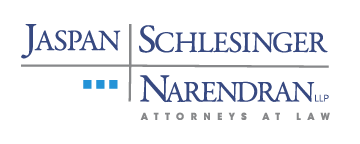On April 4, 2016, when Governor Cuomo signed into law the New York Paid Family Leave Benefit Law (the “PFL Law”), New York became the fourth state with a paid family leave program for its employees. The PFL Law was enacted to provide benefits for injury or sickness, new child care or family leave. The full scope of the PFL Law is available at www.ny.gov/programs/new-york-state-paid-family-leave. The PFL Law takes effect January 1, 2018; however, its effect in the work place commenced as of July 1, 2017, when employee payroll deductions for PFL Law benefits commenced.
Coverage
PFL Law benefits are extended to New York’s full-time private and public employees after 26 consecutive weeks of employment, and to part-time employees in the respective sectors on their 175th day of employment. Participation, which is required for all private employers, is not required for public employers, who may opt into the PFL Law or participate under the terms of a union negotiated collective bargaining agreement. As noted above, on July 1 participating employers were permitted to collect weekly employee contributions at the maximum employee contribution of 0.126% of an employee’s weekly wage, and not to exceed 0.126% of New York State’s Average Weekly Wage (“NYSAWW”). For example, based on the 2017 NYSAWW ($1,296), an employee earning weekly wages of $1,500 will have a weekly deduction of approximately $1.63 (0.126% of the 2017 NYSAWW) under the NYSAWW deduction cap.
The PFL Law provides coverage for: new parents (whether by birth, adoption, or fostering), family members caring for ‘close relatives’ with ‘serious health conditions,’ or family members caring for ‘relatives’ in lieu of family providers in active military duty. Under the PFL Law, the class of ‘close relatives’ includes: spouses, domestic partners, children, parents, parents-in-law, grandparents, and grandchildren. Classifications of ‘serious health conditions’ include ailments that involve inpatient care in a hospital or similar health facility, or continuing treatment or supervision by a health care provider. In the context of PFL Law coverage for employees’ relatives due to active duty deployment, the classification of ‘relatives’ includes: spouses, domestic partners, children, or parents.
Benefits
Starting January 1, 2018, eligible employees may take the eight week maximum benefit length (the “MBL”) period of leave. On January 1, 2019, the MBL increases to 10 weeks, and on January 1, 2021, it increases to 12 weeks. Accordingly, in 2018, the maximum wage benefit (the “MWB”) is 50% of the employees’ weekly wages; however the MWB is capped at 50% of NYSAWW. For example, based on the 2017 NYSAWW ($1,296), an employee earning weekly wages of $2,400 is eligible for MWB of $648. In 2019, 2020, and 2021, the MWB and NYSAWW benefits cap each increase to 55%, 60%, and 67%, respectively.
In foreseeable circumstances of leave, employees are required to give thirty days advance notice to employers. Within 18 days of filing a claim, the PFL Law insurance carrier is required to pay the employee or deny the claim with an explanation of the denial. More information on the PFL Law claims process (including the required submission of relevant claims’ documentation, etc.) is available at www.ny.gov/new-york-state-paid-family-leave/applying-benefits.
Despite PFL Law’s numerous benefits, coverage is not available in certain circumstances. For instance, a pregnant woman is ineligible for coverage because benefits may only be extended to new parents after child birth. Further, an employee that has taken leave and collects workers’ compensation may not dually receive PFL Law benefits. Additionally, independent contractors are ineligible for PFL Law benefits unless they purchase coverage for themselves.
Employers and employees should carefully review the PFL Law in anticipation of coverage beginning January 1, 2018. Please contact one of the attorneys in our Labor and Employment Law Practice Group if you have any questions about this memo or how the PFL Law may impact your employment policies. We would be happy to assist you.
The information contained herein should not be construed as legal advice. Readers should seek specific legal advice before acting with regard to the subjects mentioned herein.

